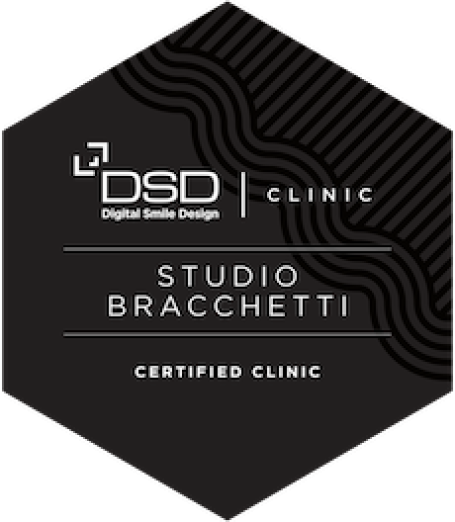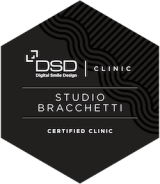Extraction of wisdom teeth (eighths)
Wisdom teeth (also called eighth or third molars) are an evolutionary remnant that we inherited from our ancestors. Thousands of years ago when our diet was made of raw and very hard foods wisdom teeth were certainly very useful for chewing and shredding.
Subsequently, cooking food, which allowed humans to chew soft and more digestible foods, made these teeth less and less necessary, to the advantage of recovering the space occupied by the larger skull.
That's why nowadays wisdom teeth do not have enough space for erupting in the correct position and sometimes they do not even form at all.
The wisdom teeth themselves are teeth that we often ignore until they erupt at 18-25 years of age. Often the difference they make in the mouth once erupted is clearly felt. In fact, they frequently give rise to various problems, not least for the sole fact of "popping up," that is, of erupting in the oral cavity. Almost everyone experiences pain and discomfort associated with inflamed gums from wisdom teeth erupting.
But let's take a closer look at why wisdom teeth have always been considered difficult.
First of all it must be said that they do not always create problems: if the wisdom teeth have sufficient space and sufficiently large arches (maxilla and mandible) they have the possibility of erupting in the correct position. If this happens and they are healthy there is no reason to extract them.
In a certain percentage of cases, however, wisdom teeth do not form at all (agenesis).
Other times they do not erupt completely and remain malpositioned and partially covered by bone and gum, giving rise to chronic infection.
In any case, pain and the possibility of infection are not the only parameters to evaluate potential damage to oral health.
Because they are the last teeth to erupt, they tend to insert themselves in a dental arch that is already formed and almost stable. Therefore often create problems of various kinds, such as crowding (not having enough space), reduction of the stability and supporting bone of the adjacent teeth (much more important from a functional point of view), difficulty in maintaining correct oral hygiene, etc.
In the case of orthodontic appliances it is often counterproductive to keep wisdom teeth as they can lengthen the treatment times and risk compromising the work already done.
Due to the reasons above, wisdom teeth are often useless and their presence can make good oral hygiene to adjacent teeth complex.
The Bracchetti Dental Practice in Milan is a fundamental ally for your well-being. With prevention, correct diagnosis, and the right therapy these problems can be solved.
It is necessary to listen to the opinion of the oral surgery specialist for a consultation before deciding on the treatment.
There are cases in which it is essential to intervene and there are others where the presence of wisdom teeth causes the onset of other diseases such as caries or pulpits. It is therefore good to go to the specialist when the first symptoms appear to decide if it is appropriate to proceed with extraction.
Here are the main cases when action needs to be taken:
Wisdom teeth are affected by cavities, abscesses or pulpits. In these cases, any type of conservative intervention is superfluous and not advisable precisely due to the limited use of the teeth in question.
The wisdom tooth grows inclined or is not aligned with the rest of the teeth. As mentioned above, not only does it risk being annoying, but an abnormal position makes oral hygiene difficult exposing the tooth itself and the adjacent one to abscesses, inflammation, the presence of pockets, and loss of bone support.
Wisdom teeth often remain included or partially included in the bone and gingiva and can only be identified by radiographic examination. Even in this situation, an accumulation of bacteria is highly probable and the risk of caries and abscess could affect nearby teeth.
Sometimes the wisdom tooth is associated with the presence of a cyst . Cysts are typically asymptomatic and can have various origins. In this case, the extraction, removal of the cyst, and a histological examination to establish the type of cyst and its origin is absolutely recommended. The cysts tend to increase in volume over time weakening the bone arch and failure to remove it can, in some cases, lead to a fractured jaw.
What is the extraction and how is it evaluated ?
In all the cases described above it is good to proceed with extraction, which can also be evaluated in adolescence, when the wisdom tooth is still in a phase of incomplete formation and consequently the roots are still small in size.
On the other hand, when operating on adult patients, the operation is usually more invasive but it is basically comparable to the extraction of a normal molar.
The conditions of the mouth of the patient are evaluated with a panoramic x-ray.
The shape of the wisdom tooth and its relationship with the surrounding anatomical structures must be carefully evaluated. In particular, the maxillary sinuses in the case of an upper judgment and the mandibular nerve in the case of a lower judgment.
If the wisdom tooth appears to be embedded in a deep position, or if the roots seem close to the mandibular nerve (the nerve which crosses the posterior part of the mandible longitudinally), a CT scan or CBCT (Cone Beam Computed Tomography) is required.
This can be carried out directly in the Bracchetti Clinic which boasts the latest generation CBCT X-ray unit or in an external radiographic center.
Once you have decided to intervene, the extraction is performed with a simple local anesthesia.
Only in the case of particularly complex operations, or in the presence of cysts, it is recommended to proceed with conscious sedation and in rare cases to use general anesthesia.
The intervention is quite fast and foresees a small post-operative course.
We therefore advise against hot drinks and food and avoid cleaning the area with a toothbrush for a few days. Discomfort and pain are rarely felt and there is rarely need for an antibiotic course. If pain and discomfort are felt they are treated with analgesics and anti-inflammatories.
In the Bracchetti Clinic in Milan we aim for maximum comfort for each patient, and we care that each of our patients has the best and most suitable treatment for their specific condition. We aim for both professionalism in interventions and availability in relation to any question that may be addressed to us.
Do not wait, trust us. Call the office and make an appointment. We will propose the solution that is best for you and your oral health.
If you would like to make an appointment at the Bracchetti Dental Clinic in Milan please click the Request form - Or you can write us on whatsapp and if you want to talk to the secretary you can do so easily by calling the office by clicking here
















